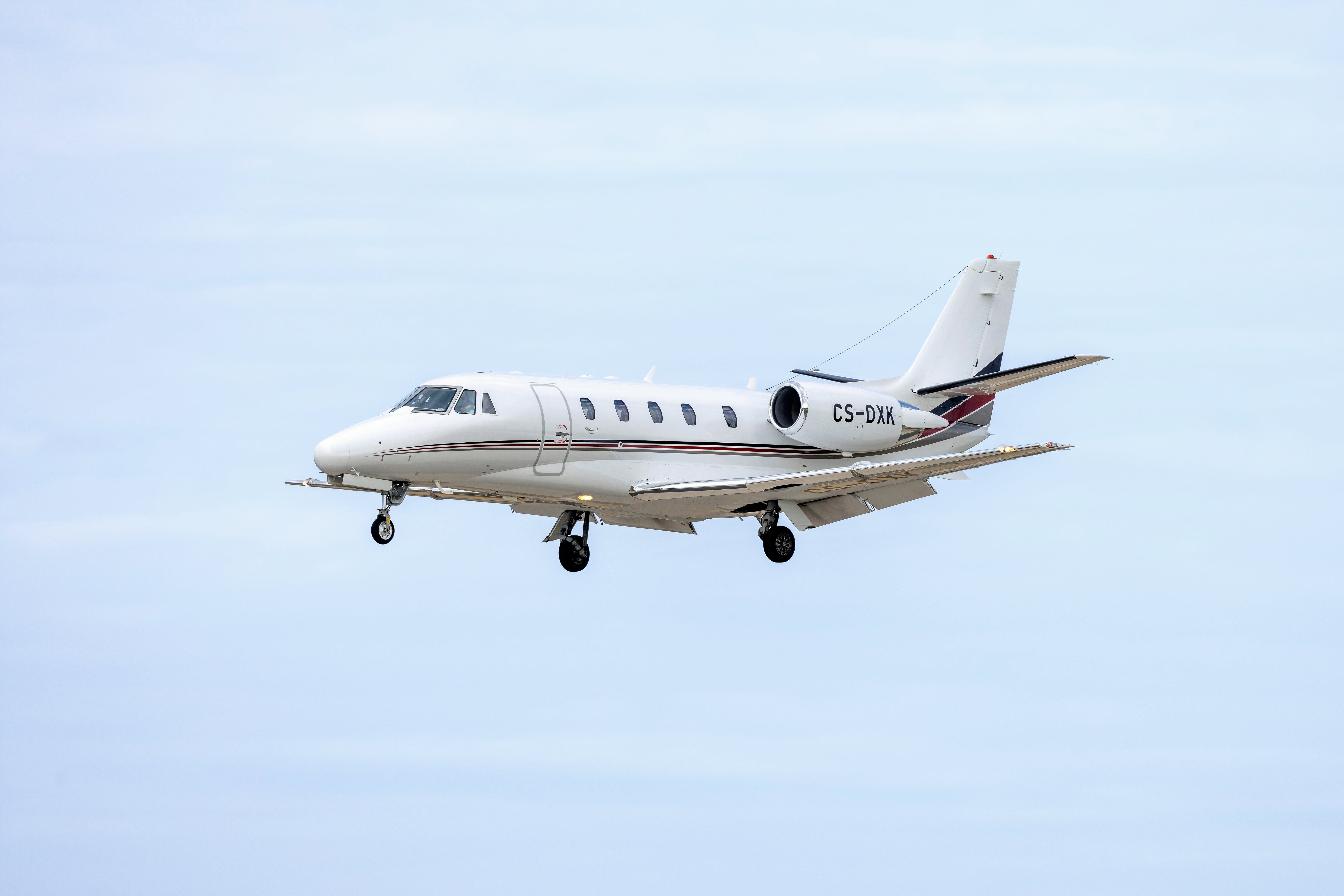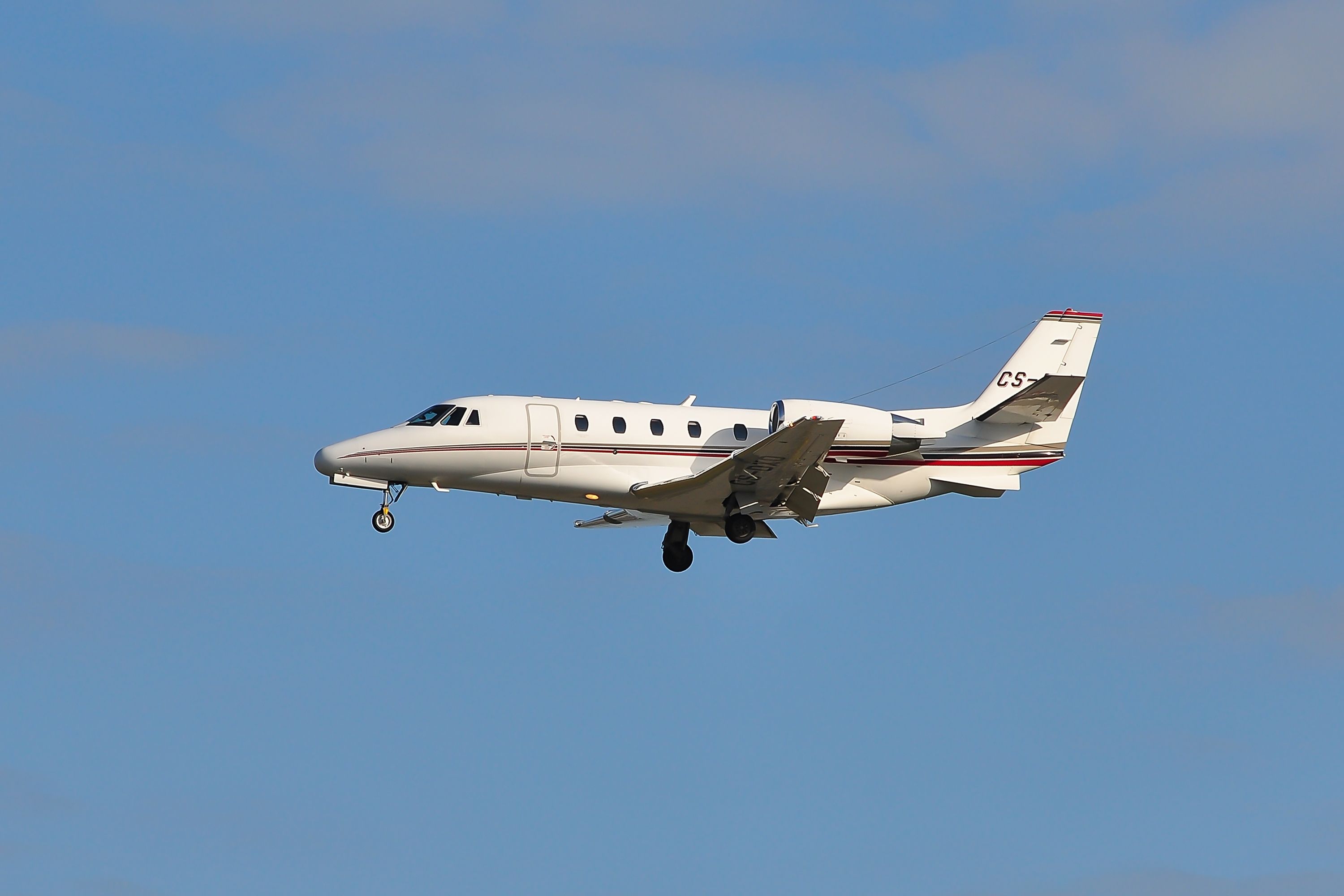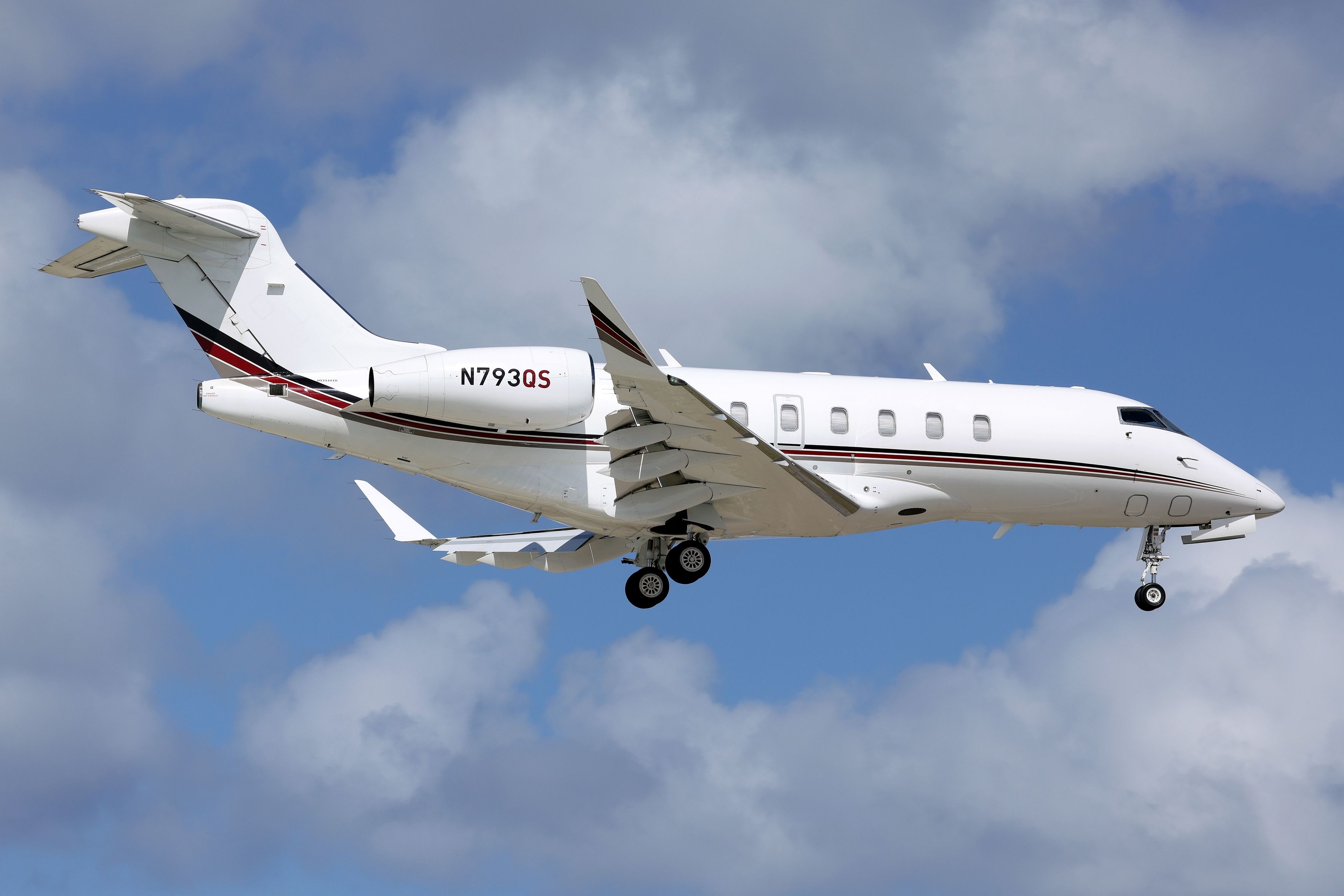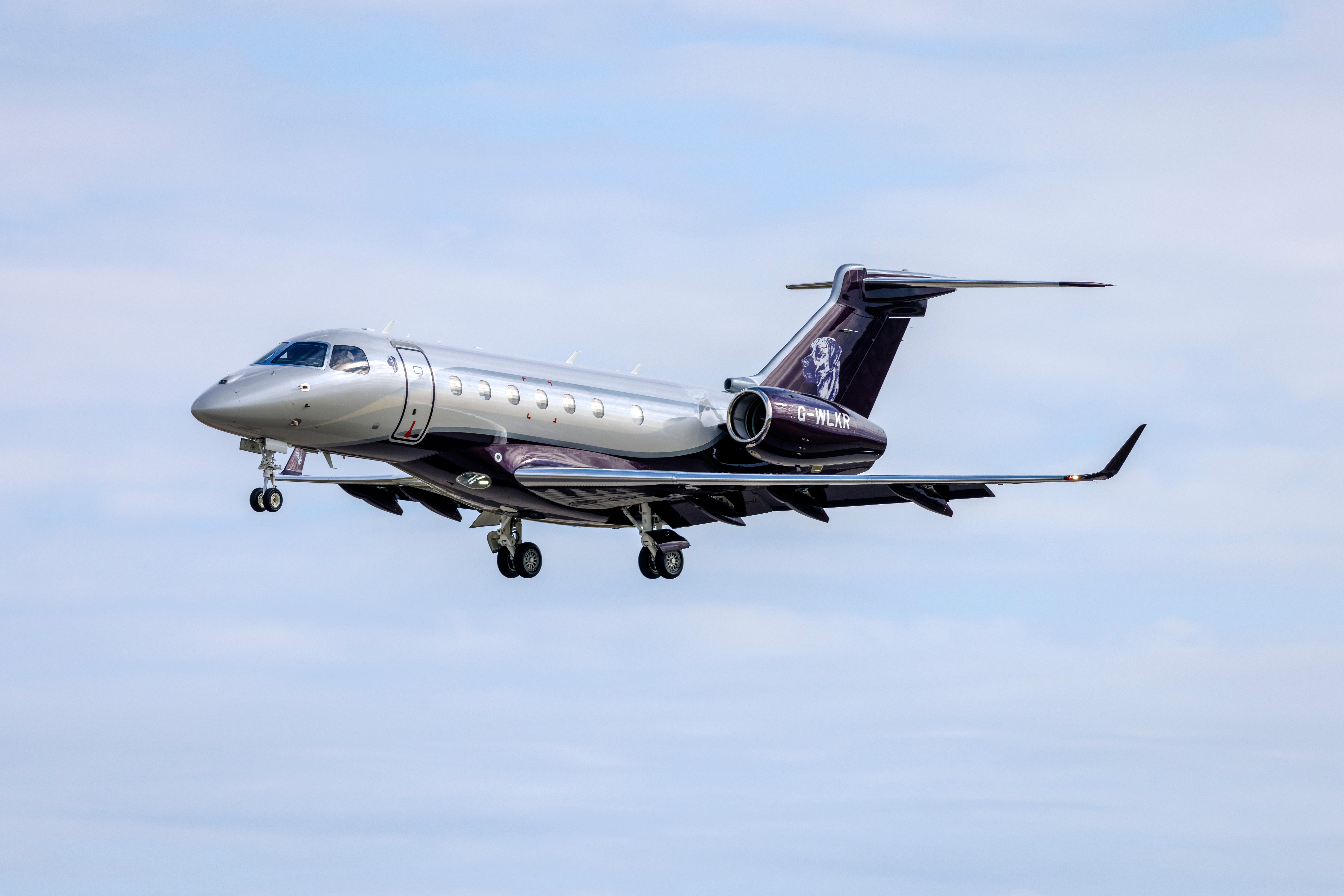Netjets, founded in 1964, has grown fast through innovative business structures such as fractional ownership and jet cards, making it one of the most profitable private aviation enterprises ever.
NetJets has grown through a series of mergers and acquisitions, resulting in a global footprint with hundreds of aircraft and subsidiaries.
NetJets capitalized on Americans’ desire to fly privately in the early 1960s. They transformed private flying from a luxury reserved for royalty and celebrities to a monthly subscription business.
NetJets memberships offer the social privilege and status of flying in a private aircraft, despite its high cost for most users.
This jet card system became the hallmark of NetJets operations, but the company also expanded into a brokerage business, a one-time aircraft charter business, and a variety of other businesses.
With the backing of Warren Buffett’s investing juggernaut, Berkshire Hathaway, NetJets has been able to fund the acquisition of competitors throughout the years, allowing it to develop organically by directly increasing market share.
A major acquisition took happened back in 2010.
NetJets’ most notable acquisition occurred in 2010, when the Buffett-backed company, which was already a force to be reckoned with in the world of private aviation, expanded by purchasing Marquis Jet, a company founded by two high-profile entrepreneurs with whom it had previously partnered.
Marquis Jet came to the table not just as a well-known brand, but also with a novel business strategy that would help shift the trajectory of NetJets’ expansion.
Marquis Jet was founded by rapper-turned-entrepreneur Jesse Itzler and American businessman Kenny Dichter. They pioneered the jet card membership system, which varied from the fractional ownership model used by NetJets and competitors at the time.
After founding the company in 2001 and selling it to NetJets nine years later, Itzler did not return to the world of private aviation, whereas Dichter founded Wheels Up, which has grown to become one of the major private charter companies on the market today.
In this post, we will go deeper into the story of Marquis Jet and why its acquisition was such a significant catalyst for NetJets’ long-term growth and expansion.
Marquis Jet offered an attractive value proposition for customers.
The Marquis Jet narrative began in 1999, when Dichter took his first private jet flight between New York and Boston on a friend’s Hawker 800 XP.
According to Business Jet Traveler, Dichter realized the private jet market’s untapped potential at this point. He sought out the assistance of Jesse Itzler, a friend who had created a reputation for himself in the world of entertainment, and recorded rap tracks that eventually became staples of the 2004 movie White Chicks.
Itzler’s name recognition in the New York area was particularly high, as he had also written one of the New York Knicks’ most famous anthems.
Dichter and Itzer’s business approach differed significantly from those of previous jet charter companies. At the time, companies like NetJets used business strategies that only gave customers two options.
Clients had the option of participating in a fractional ownership plan or purchasing a one-time charter flight, which provided good value for both low-volume and high-volume private jet travelers but bad value for those in between.
Dichter and Itzer’s Marquis Jet card was designed to provide 25 hours of flight time on NetJets-owned private jets for as little as $130,000, giving them the flexibility to take private jets whenever they wanted without the significant commitment of investing in a fractional ownership scheme that could include paying for fleet and operational infrastructure.
These cards quickly became popular among individuals seeking medium-volume access to private planes without making a long-term financial commitment.
Dichter and Itzer’s personalities and management styles have long been seen as critical components of the company’s overall success. Both regard themselves as team players, yet neither has an MBA or any other advanced degree.
Marquis Jet, which had over $800 million in revenues by 2009, was administered by only 120 individuals, while having a membership base of about 4,000 people. On any given day in 2009, approximately 3% of all members were flying, accounting for 10-15% of all flights made by NetJets aircraft.
The corporation had also made significant efforts to maintain a nationally recognized image, including collaboration agreements with Bergdorf Goodman, Montage Hotels Resort, and Avis Car Rental, all of which offered exclusive perks to Marquis Jet cardholders.
The company’s association with NetJets had also helped it retain its image, as co-founder Dichter described below:
“On an annual basis, I would estimate that 5 to 10% of our owner base is upgrading to NetJets. On the other hand, the NetJets sales team deliberately promotes Marquis cards to candidates who aren’t ready for the fractional commitment.”
NetJets was profiting greatly from its partnership with Marquis Jet, and the two founders were continuing to watch sales and customer base grow.
The Marquis Jet had become a key status symbol in America, particularly in northeastern cities such as New York and Boston.
An acquisition was certain to happen sooner or later.
Given NetJets’ existing involvement in Marquis Jet’s company, it is not surprise that an acquisition is in the works.
Marquis Jet was profiting from the cards it sold, which NetJets was eager to capitalize on. Corporate Jet Investor reported that the corporation acquired Marquis Jet from its cofounders in 2010.
At the time, it appeared that both parties were very thrilled to announce the acquisition, based on the language of their respective leaders. In a statement to the media at the time, David Sokol, NetJets’ chairman and CEO, said the following:
“By bringing NetJets and Marquis Jet together, we combine the unquestioned industry leaders in safety and owner service and, simultaneously, we create the finest sales and marketing organization in private aviation.”
NetJets stated that the acquisition would help them to lower expenses and provide the most competitive price in the market. Kenny Dichter had something similar to say at the time, saying the following to the press:
“As part of NetJets, Marquis Jet can best capitalize on new opportunities over the long term and provide even greater value to our Marquis Jet Card Owners.”
The elimination of a middleman between jet card users and NetJets management enabled more effective contact with passengers in the event of delays or other aircraft-related concerns.
Following the takeover, NetJets continued to offer jet cards, introducing the distinctive Marquis Jet Card by NetJet.
So, what is the bottom line?
At the end of the day, NetJets’ acquisition of Marquis Jet helped to dramatically expand the firm’s presence by incorporating a new company with a strong reputation into its system. Marquis Jet’s two founders have likewise proven to be respectable entrepreneurs.
While Itzler shifted his focus away from private aviation in favor of other businesses, Dichter was able to leverage his skills to help build another incredibly successful jet charter company.
At Wheels Up, he would continue to develop the jet charter business model, creating a new set of flexible options for customers to select from. NetJets is still the biggest name in private aviation, with a track record of successful acquisitions.













Leave a Reply